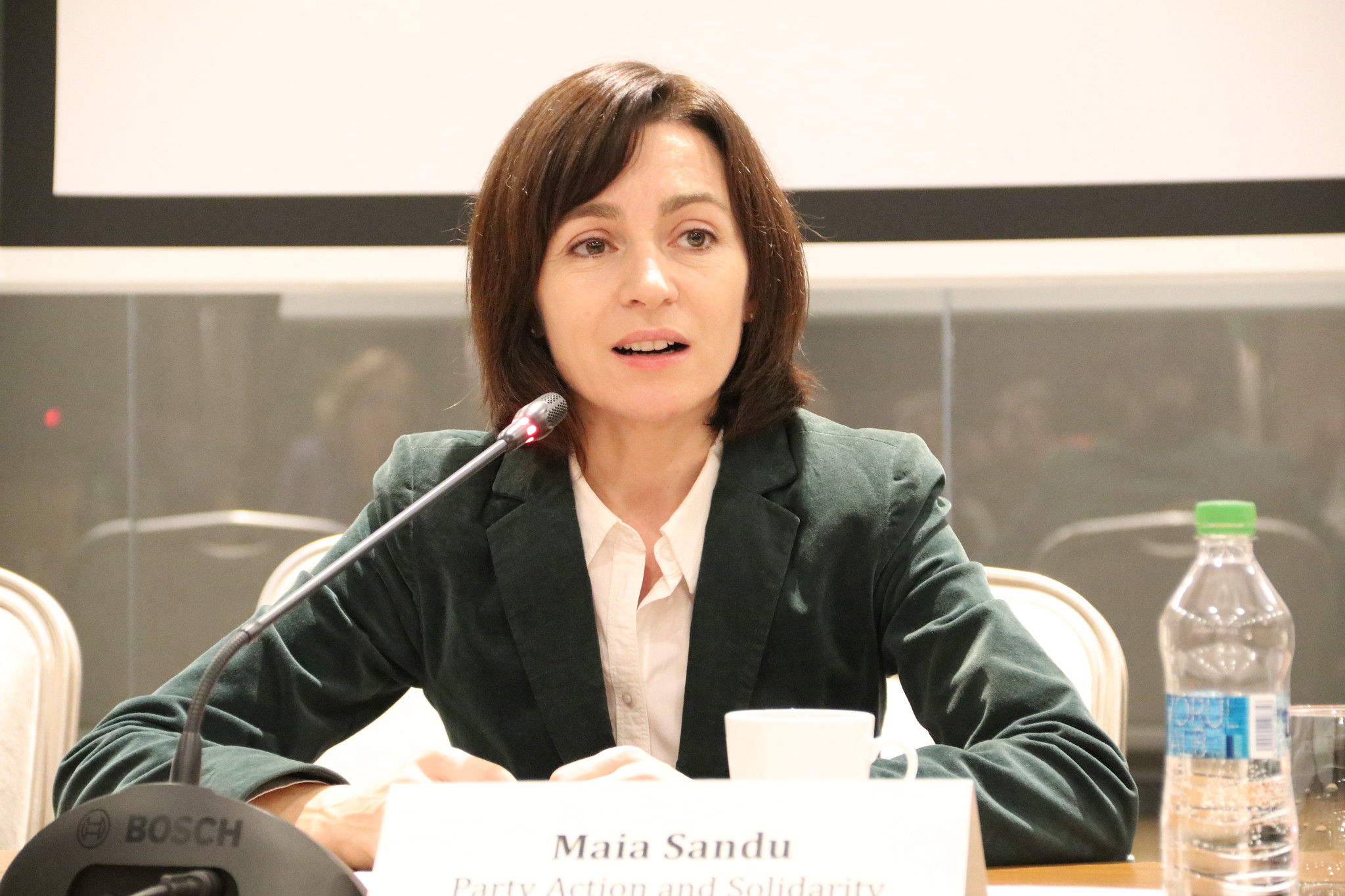
Russia Monitor is a review of the most important events related to Russian internal and external security, as well as its foreign policies.
Date: 18 November 2020
Moldova Election: Sandu Smashes Russia’s Candidate
It was quite likely for Maia Sandu to win Moldova’s run-off after she defeated the incumbent Igor Dodon in the first round. What is yet surprising is the scale of the victory for Maia Sandu. The difference is so big that the Kremlin quickly disowned the outgoing president who lost the ballot. Now Russia will do much to prevent Moldova from making a tilt towards the European Union and the United States.

Sandu won the run-off presidential race in Moldova by a landslide with 57.75 percent of the vote compared to roughly 42.25 percent of the incumbent leader. Such an overwhelming difference allows avoiding a nationwide crisis. If Sandu and Dodon had secured similar results, the latter might now seek to incite people to take to the streets to undermine the vote. Such a move would be all the easier with the socialist-dominated government and the president being a close ally of the Kremlin. While the vote gap was too far to bridge, Dodon backed away from what he had earlier said to urge his voters to “defend their ballots.” Maia Sandu is the leader of the center-right Party of Action and Solidarity (PAS). Last year her government collapsed after being in a short-lived coalition with Dodon’s socialist party. The bizarre alliance was formed just to remove the oligarch Vlad Plahotniuc and his people from power. Sandu’s party focuses its agenda around a pro-European stance, promising to tackle corruption, introduce reforms, and root out oligarch forces. Her election triumph stems largely from the disappointment that Moldovans feel amid the lack of changes under the socialist rule, economic crisis, and the country’s poor fight with the coronavirus pandemic. The president-elect does not conceal her pro-Western ambitions while declaring to keep correct ties with Moscow. The latter seems inevitable – the Moldovan government is still dominated by pro-Russian socialists whereas Moscow can put enormous pressure on Chisinau, with its gas monopoly and a military continent in the breakaway region of Transnistria that is formally part of Moldova. The Kremlin is now looking at how to ease the negative consequences of the vote. Not incidentally, Vladimir Putin was among the first to congratulate Maia Sandu on her election victory. Moscow is sending conciliatory signals – as earlier Russian officials had made no secrets of their bet on Dodon. Putin went on to suggest that the West was behind Sandu’s candidacy. When delivering his opening remarks at the Shanghai Cooperation Organization meeting via video conference on November 10, the Russian leader listed Moldova – alongside Belarus and Kyrgyzstan – among countries where “efforts are made to impose certain decisions from the outside.” “It is impermissible,” Putin added. However, Russian support in the form of advisers and money to fund the campaign proved little helpful for Dodon. His recent defeat is very painful for Russia, ditching its plans towards Moldova. Until now, it had seemed that Russia was making successful attempts to drag the country into its sphere of influence. First, after the latest general election, Russia persuaded the United States and the European Union to jointly topple the oligarch Plahotniuc who was a burden for Moscow. In June 2019, a pro-Western camp formed a peculiar majority coalition with Dodon-led pro-Russian socialists, with Sandu nominated the head of the government. After a few months, this turned out to be a ploy staged by the pro-Russian camp. While Sandy was pushing for reforms, the socialist party agreed with some members of the former Plahotniuc camp to overthrow the cabinet. A new government was formed, with most people loyal to Dodon. If it had been re-elected, the Russian grip on Moldova would have consolidated for good. Now the things get far more complicated. Though the government and parliament both play a dominant role in Moldova, a pro-Western president might put Russian expansion to a halt while being a sign of changes, with the pro-Western camp taking over.
Support Us
If content prepared by Warsaw Institute team is useful for you, please support our actions. Donations from private persons are necessary for the continuation of our mission.
_________________________________
All texts published by the Warsaw Institute Foundation may be disseminated on the condition that their origin is credited. Images may not be used without permission.

















